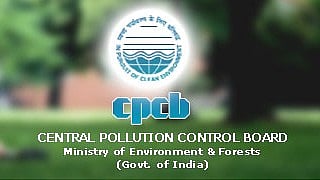
CPCB logo.
Credit: Special Arrangment.
Bengaluru: Nearly half of the 26 state pollution control boards and committees in Union Territories (UTs) are struggling with severe staff shortage, a report by the Central Pollution Control Board (CPCB) has revealed.
The report also noted that 10 states and UTs had yet to submit their status updates, even as environmental enforcement responsibilities have expanded significantly.
Over the years, environmental laws have broadened to address air and water pollution, plastic waste, hazardous waste, biomedical waste, and electronic waste. However, many pollution control boards (PCBs) and pollution control committees (PCCs) continue to operate with vacancies as high as 60 per cent.
The CPCB’s latest report, based on submissions from 20 state PCBs and six UT PCCs, revealed that only Arunachal Pradesh and Nagaland have full sanctioned staffing. Some boards have taken steps to fill vacancies, but these efforts remain partial, the CPCB stated.
The report follows a National Green Tribunal (NGT) directive to address staffing shortages after it took suo motu cognizance of a DH report. Eight states, including Karnataka, Tamil Nadu, and Maharashtra, have yet to provide updates on their progress.
In Karnataka, 433 of the 723 sanctioned posts — nearly 60 per cent — were vacant as of late 2023.
Andhra Pradesh had the highest vacancy rate, with 70 per cent (202 out of 289 posts) unfilled. Madhya Pradesh and at least 10 other states also reported 60 per cent vacancies. Delays were attributed to court cases, ongoing amendments to service rules, and slow promotion processes.
Eleven PCBs and two PCCs also provided updates on their laboratory infrastructure, as mandated by the NGT. These labs, equipped with instruments for testing air and water quality, are crucial for enforcing environmental regulations.
Experts say the staffing crisis stems from outdated assessments made 15 to 20 years ago when pollution sources were fewer. "The entire system needs expansion, along with an upgrade in technical infrastructure, to effectively tackle environmental challenges," a source said.